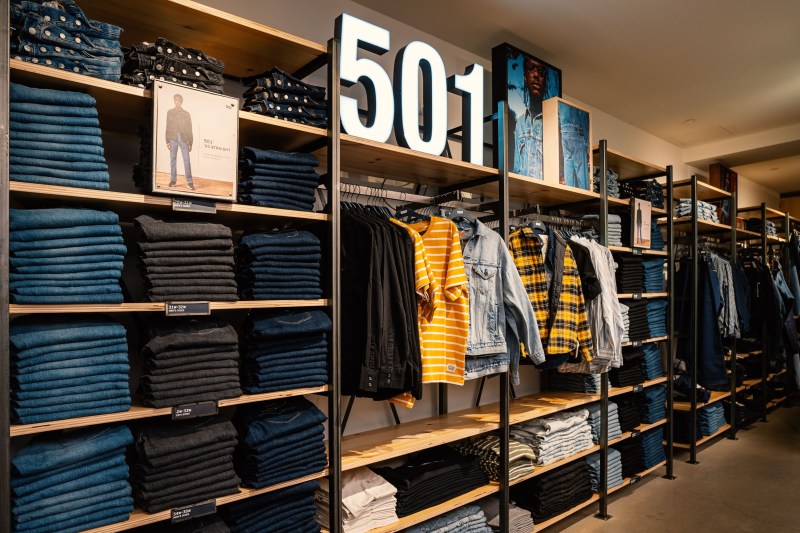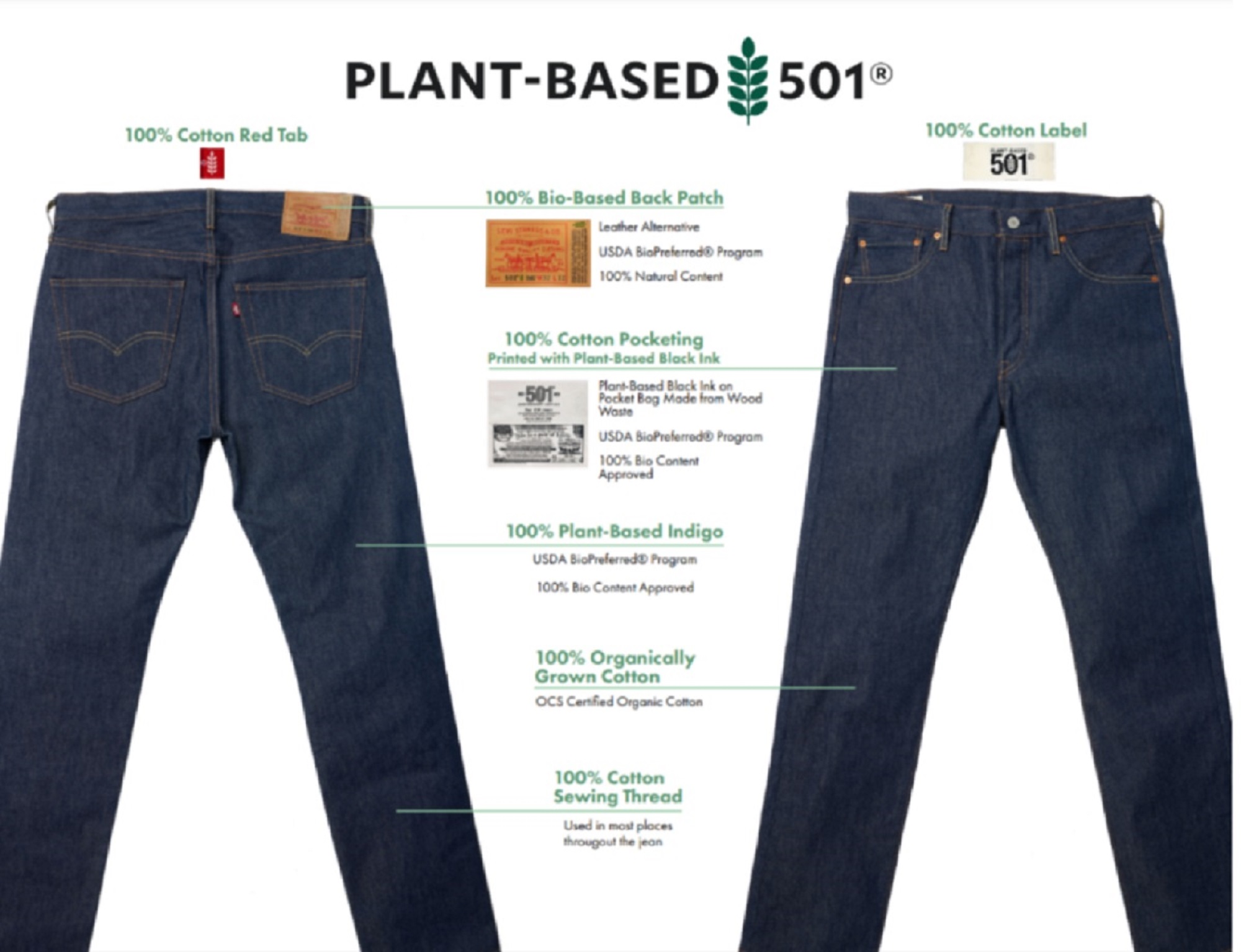
For over 150 years, Levi’s has remained a symbol of timeless style and quality. The brand is as much a symbol of American culture as The Statue of Liberty or The White House. Now, as the iconic Levi’s 501 jean reaches its sesquicentennial milestone, the renowned brand celebrates with an initiative that aims to redefine sustainable fashion. In a bold move toward a more environmentally friendly future, Levi’s introduces a variety of new styles, including the Plant-Based 501, the hemp-cotton blend Selvedge 501, and the Circular 501. These designs showcase the brand’s commitment to pushing the boundaries of sustainability while preserving the essence of the John Wayne classic.
A new era of sustainability
Levi’s has been on a continuous journey toward environmentally friendly development and these latest offerings represent the pinnacle of their efforts. The Plant-Based 501 is constructed from a minimum of 97% plant-based materials, which would have been unheard of a decade ago. The jeans feature certified organic cotton, natural dyestuff, a plant-based patch, and ink derived from wood waste. This eco-conscious creation addresses the urgent need to minimize the use of synthetic materials derived from fossil fuels and underlines the necessity of utilizing renewable inputs in garment manufacturing.

Features of the plant-based 501
The attributes of the Plant-Based 501 are nothing short of revolutionary. The fabric is made from 100% OCS-Certified organically grown cotton, which is dyed with plant-based indigo from Stony Creek Colors. The denim color references Levi’s X80 archival shade, paying homage to the brand’s rich history while embracing a more eco-friendly future. Every detail has been thoughtfully curated to ensure the jeans are genuinely sustainable and environmentally conscious.
The garment back patch, for example, is crafted from a material known as MIRUM by NFW, fashioned entirely from 100% biobased, plastic-free inputs. Even the internal pocket bag is made from 100% cotton and printed with BioBlack TX, a plant-based black pigment derived from wood waste, showcasing Levi’s dedication to a circular, closed-loop system of manufacturing.
What’s next
Levi’s envisions the Plant-Based 501 not merely as a product but as a stepping stone toward a more eco-conscious future. Paul Dillinger, VP of Design Innovation at Levi Strauss & Co, said, “We want to show what is possible. At the same time, we’re challenging ourselves to get closer to a state where products like this represent more of a product line, and where they’re seen not as the endgame, but a starting point that we want to top next season, and the season after that.”
In addition to the Plant-Based 501, Levi’s has introduced the hemp-cotton blend Selvedge 501, which continues the brand’s commitment to using alternative fibers, such as cottonized hemp, to reduce environmental impact. Available in various shades and finishes for both men and women, these jeans merge premium selvedge fabric with the eco-friendly advancements of the Wellthread line.
The Circular 501, initially launched in 2022, is made with a blend of organic cotton and Renewcell’s Circulose fiber, which incorporates recycled denim and other textile waste. According to the company, these jeans significantly reduce the use of natural resources and chemicals in the production process. By replacing synthetic elements with 100% cotton alternatives, Levi’s ensures that the jeans are fully recyclable.
Levi’s is still the same brand that appeared on the cover of Bruce Springsteen’s 1984 album Born in The U.S.A. — now, it’s just a little bit greener.



